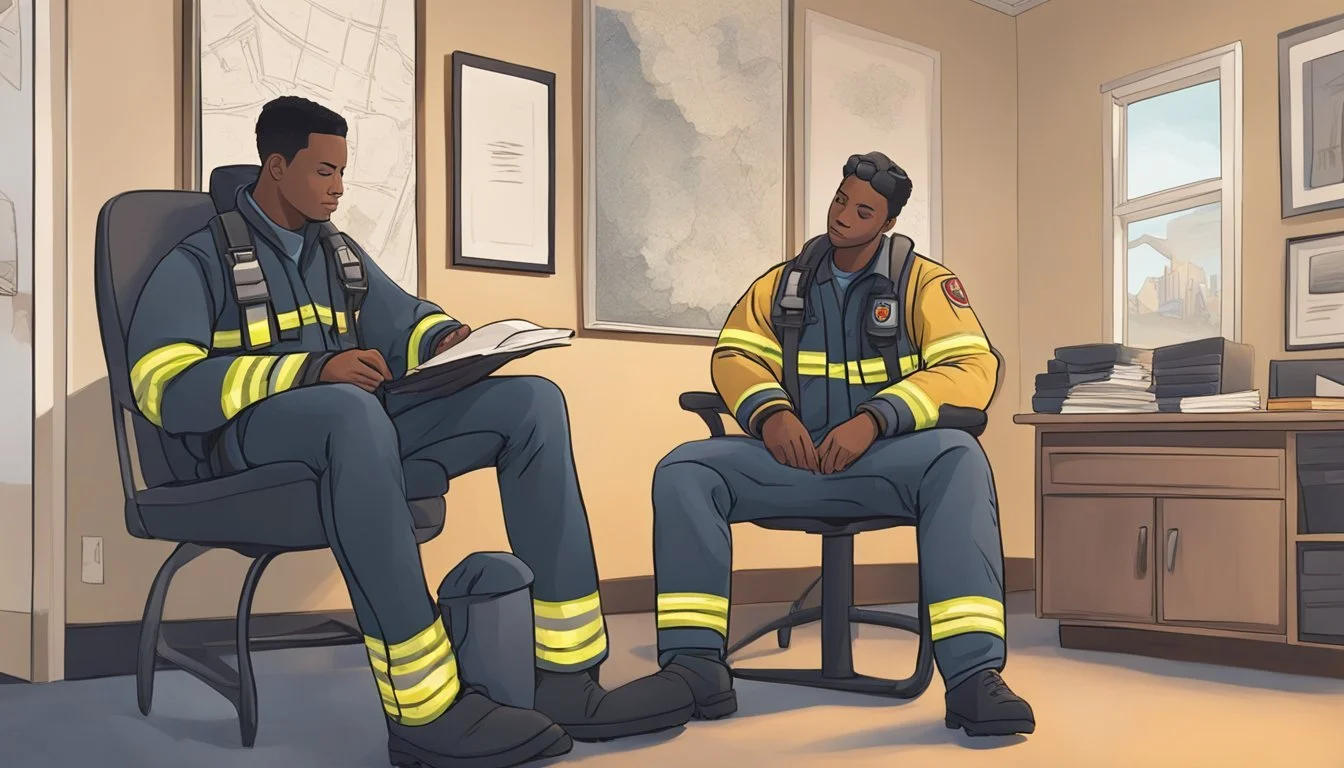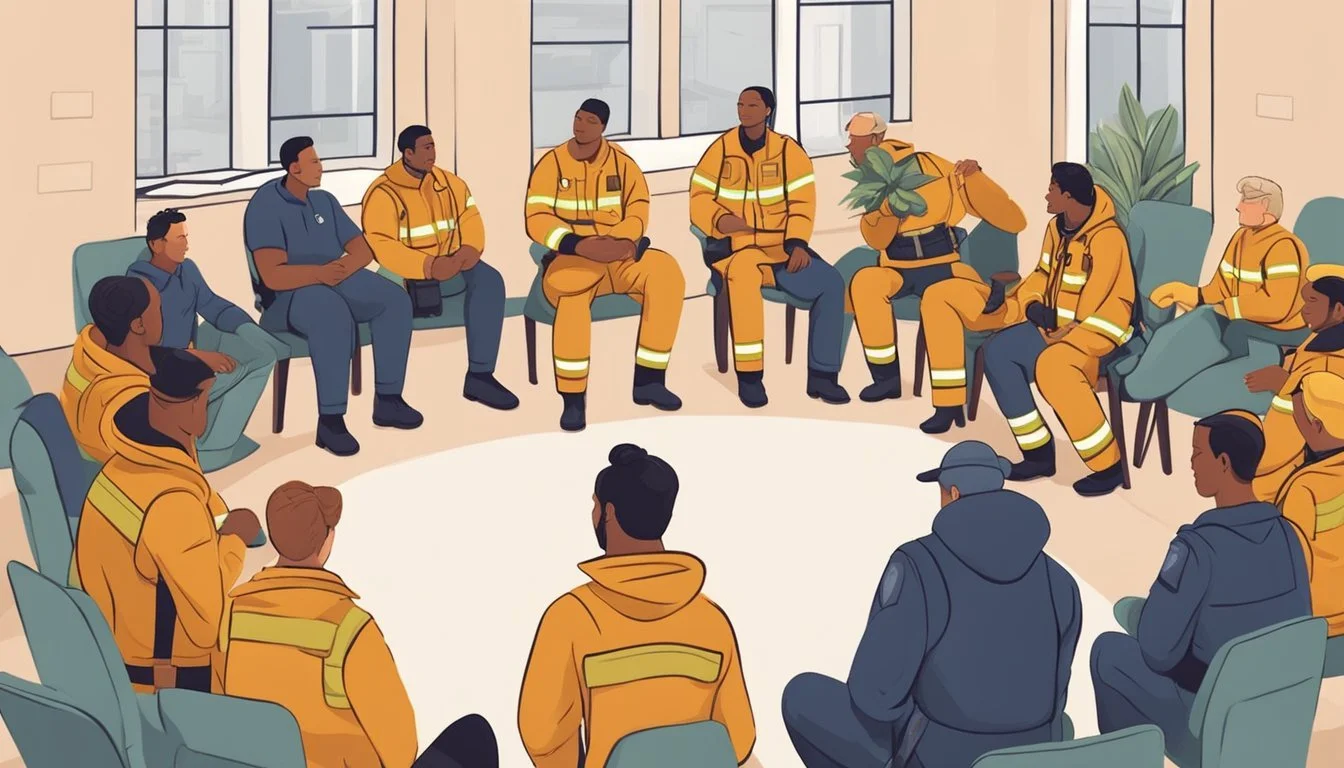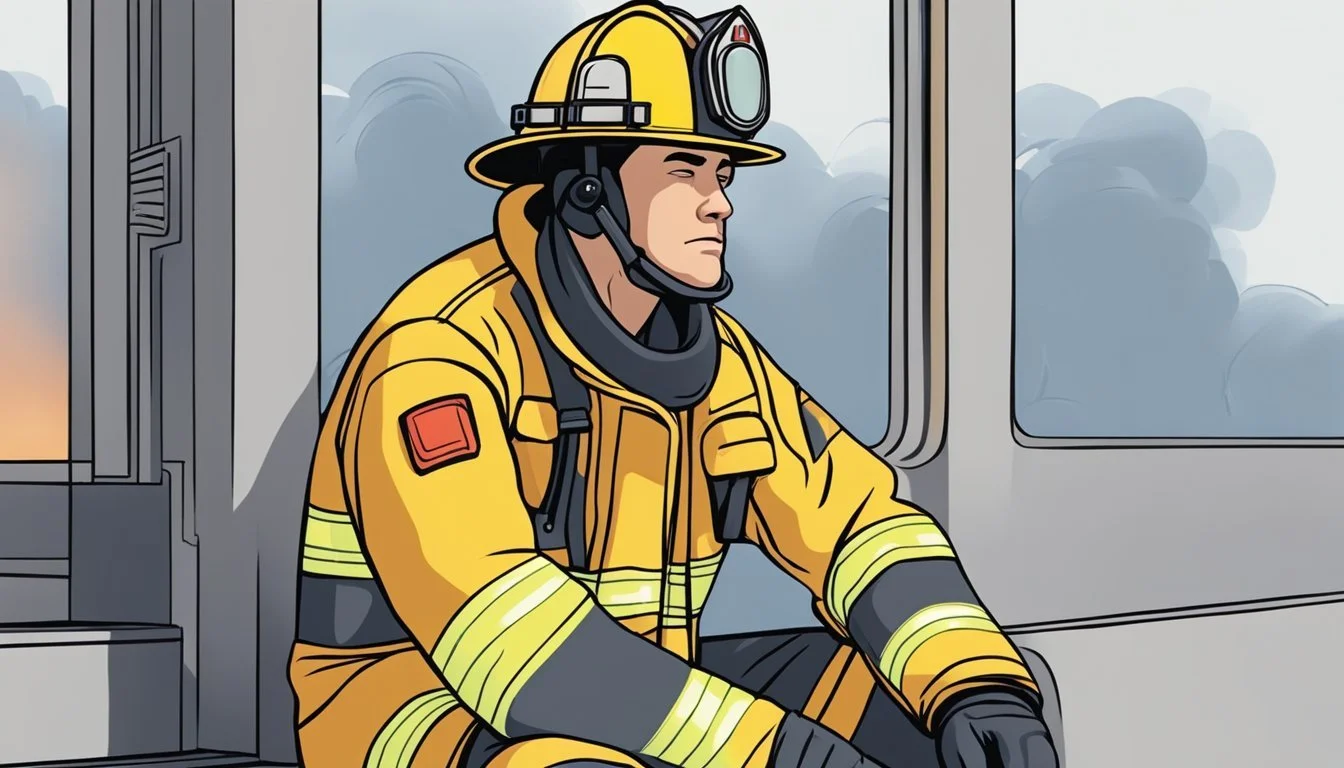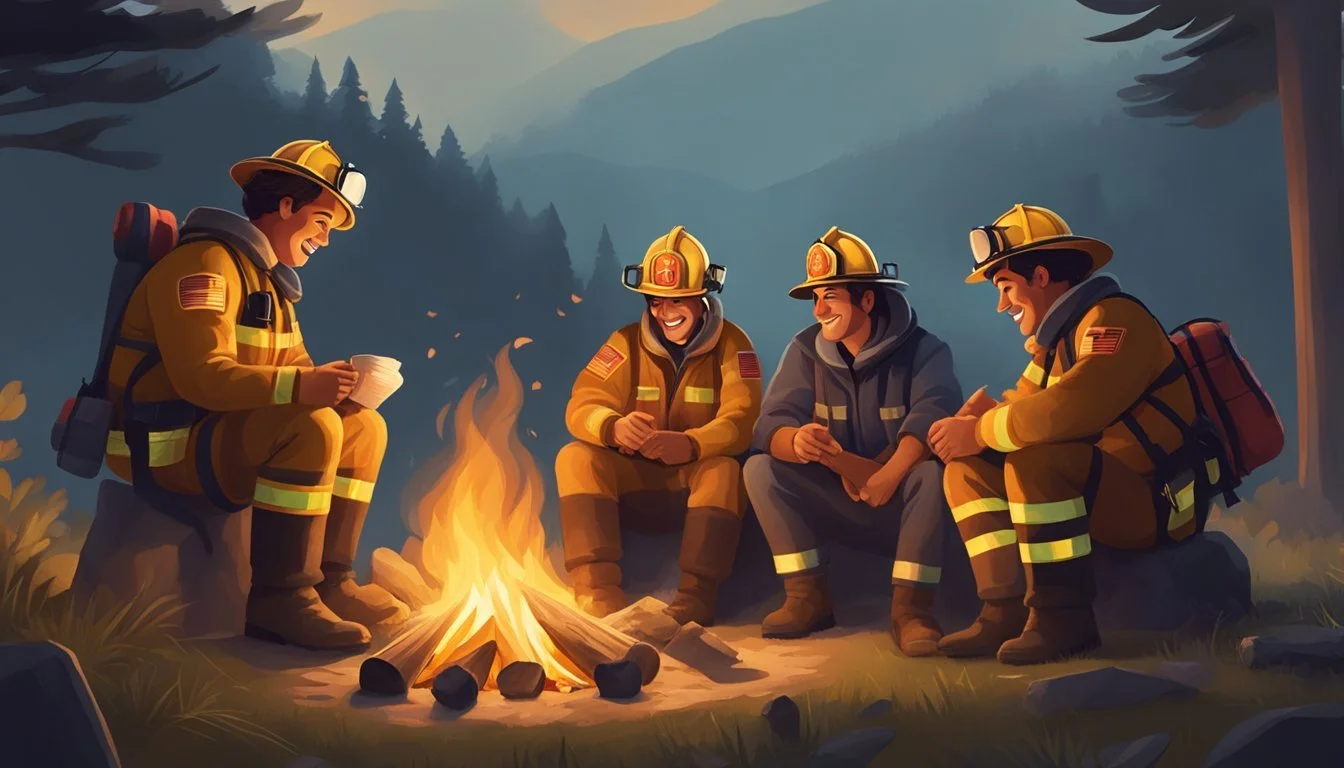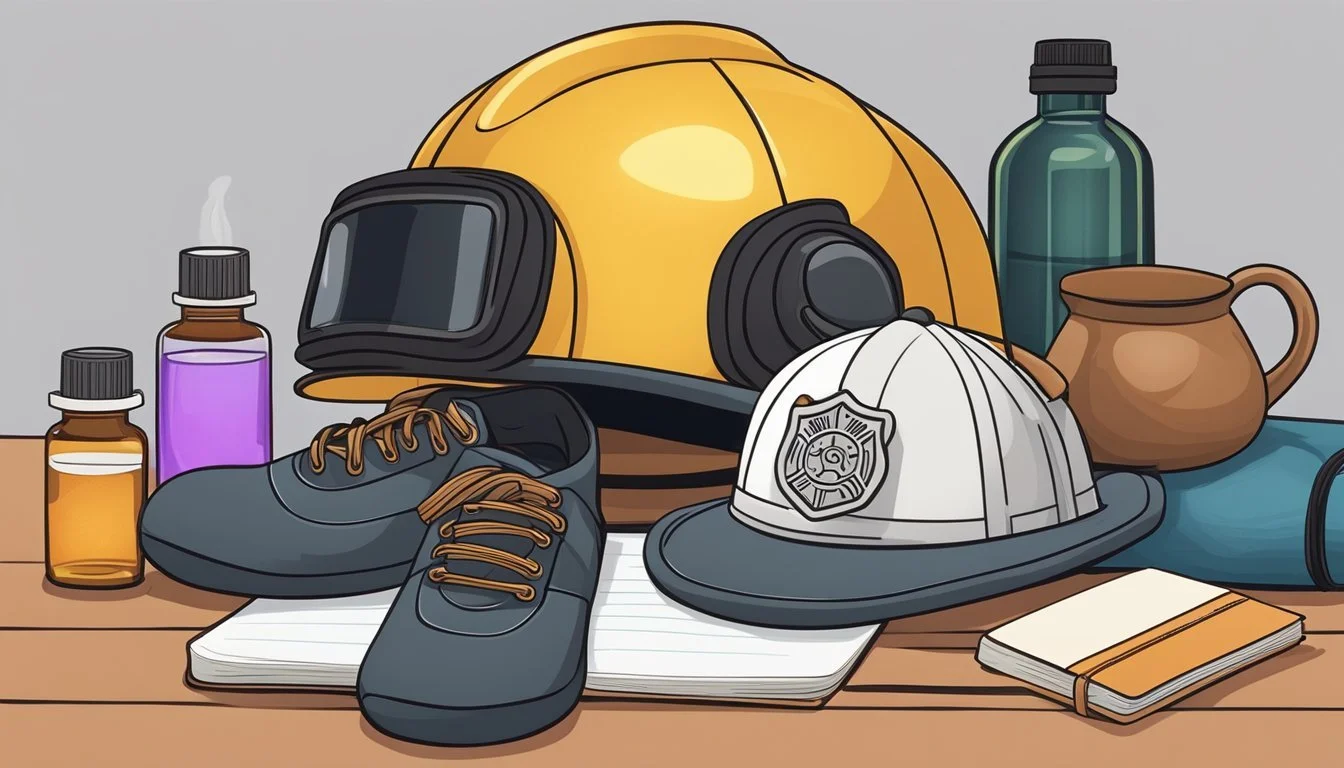13 Self-Care Practices for Firefighters with PTSD
Essential Strategies for Mental Health
Firefighters face immense physical, mental, and emotional challenges in their line of duty. Their exposure to traumatic events significantly increases their risk of developing post-traumatic stress disorder (PTSD), which can profoundly impact their well-being.
This article will explore effective self-care practices that can help firefighters manage and alleviate symptoms of PTSD. By focusing on both practical strategies and supportive resources, we aim to provide valuable insights for improving the overall quality of life for those who courageously serve their communities.
1) Practice Mindfulness Meditation
Mindfulness meditation is a highly effective practice for managing PTSD symptoms among firefighters. It involves focusing on the present moment and accepting it without judgment. This simple yet powerful technique can significantly reduce stress and anxiety levels.
Firefighters can benefit from various forms of mindfulness, such as guided meditation, mindfulness-based stress reduction (MBSR), and mindfulness-based cognitive therapy (MBCT). Each of these methods provides unique advantages, helping individuals to manage their emotional responses more effectively.
According to a review of the treatment literature, mindfulness-based treatments for PTSD show medium to large effect sizes with low attrition rates. This indicates their effectiveness and the likelihood that individuals will continue using these practices.
Additionally, mindfulness helps in restoring brain network activity that is often altered in individuals with PTSD. Regular practice can lead to long-term improvements in mental health, promoting overall well-being and functional recovery.
Firefighters experiencing PTSD can start with short sessions of mindfulness meditation and gradually lengthen the duration as they become more comfortable. Integrating mindfulness into daily routines can provide a practical and accessible way to manage stress and improve mental health.
2) Seek Professional Counseling
Seeking professional counseling is essential for firefighters dealing with PTSD. Professional counselors trained in fire service culture can provide valuable insights and coping mechanisms specifically tailored for first responders.
Counseling sessions can help firefighters process traumatic experiences and reduce symptoms of acute stress disorder (ASD) and PTSD. These sessions can be particularly effective when held shortly after a traumatic event.
Firefighters experiencing persistent stress or intrusive thoughts should consider regular counseling as part of their self-care routine. Professional help is designed to support their mental health and overall well-being, allowing them to continue performing their duties effectively and safely.
Firefighters should not hesitate to seek assistance from mental health professionals. This step is crucial to maintaining mental resilience and preventing long-term emotional exhaustion.
3) Engage in Physical Exercise
Regular physical exercise can significantly help manage PTSD symptoms in firefighters.
Aerobic activities, such as running or cycling, are particularly effective. Aim for 30 to 40 minutes, three to five days a week, to reduce anxiety and depression.
Strength training can also be beneficial. Tailoring workouts to the demands of firefighting ensures the maintenance of peak physical condition.
Exercise not only enhances physical health but also improves mood and mental clarity. Positive adjustments in mood can be crucial for those dealing with PTSD.
Lastly, incorporating activities like yoga or pilates can improve flexibility and reduce stress. These practices often emphasize controlled breathing and mindfulness, further aiding emotional regulation. Combining different types of exercise can provide balanced physical and mental benefits.
4) Join a Support Group
Participating in a support group offers firefighters a valuable space to share experiences and emotions. Connecting with others who understand their specific challenges can be comforting.
Support groups provide a platform to discuss coping mechanisms and strategies. This exchange of ideas can lead to practical solutions for managing PTSD symptoms.
Having regular meetings with peers facing similar issues helps reduce feelings of isolation. It fosters a sense of community and belonging, essential for mental health recovery.
Many organizations offer specialized support groups for first responders. For example, the IAFF Recovery Center highlights the importance of communication after crises.
Online options are also available for those who prefer digital interaction. These groups can be accessible and convenient, allowing participants to join from anywhere.
Joining a support group is a proactive step toward mental health and resilience. It builds a network of understanding and encouragement, crucial for long-term recovery.
5) Maintain a Healthy Diet
Maintaining a healthy diet is crucial for firefighters, especially those dealing with PTSD. A balanced diet can help stabilize mood, improve energy levels, and support overall physical health. Firefighters should focus on consuming a variety of nutrients from whole foods.
Incorporate lean proteins such as chicken, fish, and legumes to support muscle repair and maintenance. Healthy fats from sources like avocados and nuts can provide sustained energy and cognitive support. Whole grains such as brown rice and quinoa offer complex carbohydrates for long-lasting energy.
Fruits and vegetables are essential for their vitamins, minerals, and antioxidants. These can help reduce inflammation and promote overall well-being. Hydration is also key; firefighters should aim to drink plenty of water throughout the day to stay hydrated.
Avoiding excessive caffeine and sugar is important. These can lead to energy crashes and exacerbate stress symptoms. Instead, opt for natural snacks like fruit or yogurt for sustained energy.
Eating at regular intervals can help maintain blood sugar levels and prevent mood swings. Preparing meals in advance can also save time and ensure healthy choices are available, even during busy shifts.
By prioritizing a healthy diet, firefighters can better manage the physical and mental challenges they face on the job.
6) Use Breathing Techniques
Breathing techniques offer an effective way for firefighters to manage PTSD symptoms. Focused breathing exercises help reduce anxiety by calming the nervous system.
A common technique involves taking a slow, deep breath in through the nose while counting to five. Hold the breath for a few seconds before exhaling slowly through the mouth to the count of seven.
Firefighters can also try 4-7-8 breathing. Inhale through the nose for four seconds, hold for seven seconds, and exhale through the mouth for eight seconds. This method can reduce stress and promote relaxation.
Utilizing these techniques regularly enables firefighters to build resilience against PTSD triggers. Consistent practice is key to experiencing the full benefits.
7) Adopt a Hobby or Interest
Engaging in a hobby can provide significant mental and emotional relief for firefighters dealing with PTSD. Hobbies allow individuals to focus on enjoyable activities, offering a distraction from stress and trauma.
Physical activities like hiking or cycling can improve mood and physical health. Creative hobbies such as painting or writing can serve as an emotional outlet and foster a sense of achievement.
Social hobbies, involving others, help build supportive connections and reduce feelings of isolation. Group activities like team sports or community volunteering can be particularly beneficial for social interaction and support.
Choosing a hobby that aligns with personal interests ensures sustained engagement and enjoyment. Whether it's gardening, photography, or playing a musical instrument, finding an enjoyable pursuit is key.
Engaging regularly in a hobby promotes relaxation and provides a sense of normalcy. It can also contribute to a balanced lifestyle, enhancing overall well-being and quality of life.
For more insights, you can read about self-care essentials for firefighters and how they can maintain physical, mental, and emotional health.
8) Create a Relaxation Routine
Establishing a relaxation routine can significantly benefit firefighters dealing with PTSD. Incorporate practices like deep breathing exercises to help manage stress levels effectively.
Engaging in meditation can offer a moment of peace amidst a hectic schedule. Short, regular sessions can provide substantial mental calmness.
Yoga is another excellent addition. It combines physical movement with mindfulness, promoting overall well-being.
Listening to calming music can aid in relaxation. Choose tunes that soothe and help unwind after a demanding day.
Regularly engaging in these practices can help maintain mental and emotional balance. Additionally, combining these techniques with adequate sleep ensures comprehensive self-care.
Having a structured routine involving these activities can help mitigate the effects of PTSD. It's essential for firefighters to allocate dedicated time for relaxation as part of their daily routine to improve their resilience and effectiveness.
9) Set Realistic Goals
Setting realistic goals is crucial for firefighters dealing with PTSD. Overambitious goals can lead to frustration and setbacks. Smaller, achievable steps provide a sense of accomplishment and steady progress.
One effective strategy is the SMART goal framework. SMART stands for Specific, Measurable, Achievable, Relevant, and Time-bound. This approach ensures goals are clearly defined and attainable within a reasonable timeframe.
For a firefighter, a goal might be to attend therapy sessions regularly. This can be broken down into specific targets, such as attending one session per week for three months. Tracking progress can boost motivation and highlight improvements.
Personal and professional goals should also align with each other. Balancing career ambitions with personal well-being helps maintain overall health. For instance, improving physical fitness can directly impact job performance and personal resilience.
By setting and achieving realistic goals, firefighters can manage PTSD symptoms more effectively. This structured approach supports continuous improvement and long-term well-being.
For more strategies on managing PTSD, check out 13 SMART Goals Examples for PTSD Treatment.
10) Spend Time with Loved Ones
Firefighters with PTSD often find solace in spending time with loved ones. Connecting with family and friends provides emotional support and a safe space to express feelings.
Social interactions can help alleviate some of the stress and anxiety. Sharing experiences with trusted individuals fosters a sense of belonging and reduces isolation.
Regularly engaging in activities with loved ones, such as having meals together or participating in hobbies, helps maintain strong relationships. This social support network is crucial for mental health and well-being.
Including loved ones in self-care routines can also strengthen bonds. These shared moments create positive memories that can be a source of comfort during difficult times.
Staying connected with loved ones isn’t just beneficial for mental health but can also improve physical health. Positive relationships can lower blood pressure, improve heart health, and boost the immune system.
To maximize the benefits, it’s essential to make quality time a priority. Setting aside time each week, even if it’s just a few hours, can make a significant difference.
For more strategies on maintaining emotional balance, consider visiting Self-Care Essentials for Firefighters. Connecting with loved ones remains a cornerstone of effective self-care for firefighters.
11) Volunteer for Community Service
Volunteering can be a powerful tool for firefighters dealing with PTSD. By engaging in community service, they can create a sense of purpose and accomplishment.
Participating in community service helps firefighters build strong social connections. This can reduce feelings of isolation and provide emotional support from peers.
Engaging in acts of service can also offer a positive distraction from PTSD symptoms. The focus shifts to helping others, which can reduce stress and anxiety levels.
Firefighters can volunteer at local shelters, food banks, or community events. These activities allow them to interact with different people and gain diverse experiences.
Many firefighters find that giving back to their community enhances their sense of belonging. It reinforces their role as valued members of society, further boosting their mental well-being.
By dedicating time to volunteer work, firefighters can also develop new skills and hobbies. This ongoing personal growth can be beneficial in coping with PTSD.
Fire departments often organize community service events. These provide structured opportunities for firefighters to participate and make a difference.
Overall, volunteering serves as a therapeutic activity that promotes mental wellness. It cultivates a supportive environment where firefighters can thrive.
For more detailed information on mental health resources for firefighters, consider exploring articles such as Maintaining Mental Health: Resources for Firefighters.
12) Keep a Journal
Keeping a journal can be a powerful tool for firefighters dealing with PTSD. It provides a private space to express their thoughts and emotions, which can help in processing traumatic experiences.
Writing about daily experiences can help identify triggers and patterns in symptoms. This awareness can be the first step towards managing PTSD effectively.
Moreover, documenting progress can serve as an encouraging reminder of the positive strides made over time. Reflecting on past entries can highlight growth, resilience, and coping strategies that have been effective.
Firefighters may also use journaling to set goals or track new habits aimed at improving mental health. This method can reinforce a sense of control in their lives.
Journaling doesn't require extensive writing skills. It can be as simple as jotting down thoughts, events, and feelings in free form. Bullet points, lists, and sketches are equally effective.
Incorporating journaling into a daily routine can also provide a sense of consistency and structure. This can be especially beneficial for those who feel their lives are chaotic due to PTSD.
13) Develop a Sleep Schedule
Establishing a consistent sleep schedule is crucial for firefighters dealing with PTSD. Regular sleep patterns can help regulate the body's internal clock, making it easier to fall and stay asleep.
Firefighters often work irregular shifts, but it’s vital to stick to a sleep routine even on days off. Going to bed and waking up at the same time each day improves sleep quality.
Creating a conducive sleep environment is equally important. A cool, dark, and quiet room can enhance sleep. Avoiding screens and engaging in relaxing activities before bed can also aid in winding down.
Sleep aids like white noise machines or blackout curtains might be beneficial. Limiting caffeine and heavy meals in the evening can prevent sleep disturbances.
For firefighters facing insomnia related to trauma, the role of CBT-I may be significant. This cognitive behavioral therapy specifically targets insomnia by adjusting sleep habits and attitudes.
Incorporating a mix of strategies, such as setting a routine and optimizing the sleep environment, can make a big difference in overall wellbeing. Taking these steps can contribute to better nights and more restful sleep.
Understanding PTSD in Firefighters
PTSD in firefighters is often a result of repeated exposure to traumatic events. Recognizing its causes and early signs is crucial for timely intervention and support.
Causes and Triggers
Firefighters are frequently exposed to distressing situations such as accidents, fires, and fatalities. These traumatic events can lead to PTSD, especially when firefighters experience a high number of such incidents. A study showed that firefighters experience an average of 28 adverse events during their careers, which significantly contributes to mental health issues.
Specific triggers for PTSD can include witnessing severe injuries or deaths, operating in dangerous conditions, and experiencing personal threats. These triggers don't always manifest immediately; they might accumulate over time, exacerbating stress and trauma. In some cases, events can resurface memories of past traumas, intensifying PTSD symptoms.
The high-risk nature of firefighting puts individuals at a continuous risk of PTSD. This condition affects approximately 20% of firefighters at some point in their careers, compared to 6.8% in the general population.
Early Warning Signs
Identifying early warning signs of PTSD is essential to provide timely support to firefighters. Key indicators include recurring, distressing memories of traumatic events, nightmares, and severe anxiety. Firefighters may also exhibit hypervigilance, where they are always on edge and overly alert to potential dangers even in safe environments.
Other common signs are avoidance behaviors such as steering clear of places, activities, or people that remind them of the traumatic event. Mood changes, including feelings of helplessness, guilt, or detachment, can also signal PTSD. Moreover, physical symptoms like headaches and stomach problems can be indicative of underlying PTSD, highlighting its extensive impact on both mental and physical health.
Understanding these signs can help fire departments and mental health professionals provide better care and intervention strategies for those affected.
Importance of Self-Care for Firefighters
Firefighters face unique challenges that can impact both their physical and mental health. Effective self-care is essential to keep them performing at their best and to help guard against burnout and other severe health issues.
Physical Health Benefits
Regular self-care practices can significantly enhance a firefighter's physical health. Engaging in consistent physical exercise improves cardiovascular health, strengthens muscles, and increases endurance, which are crucial for the physically demanding tasks they encounter. Nutrition also plays a critical role. A balanced diet ensures that firefighters have the energy and nutrients necessary to perform their duties effectively.
Moreover, adequate rest and sleep are important. Proper sleep helps with muscle recovery and maintaining high energy levels. Neglecting sleep can lead to fatigue, reducing a firefighter's ability to respond quickly and effectively during emergencies.
Mental Health Benefits
Self-care is equally vital for mental well-being. Practices such as mindfulness, regular breaks, and pursuing hobbies can significantly reduce stress levels. Practicing self-care enables firefighters to manage the daily stresses and traumatic experiences they encounter on the job.
Engaging in activities that they enjoy can provide a mental break from the pressures of their work. This helps to prevent conditions like depression, anxiety, and PTSD, which are prevalent among first responders. Taking time to unwind and relax is essential for mental resilience, improving overall job performance and personal satisfaction.
Professional Support and Therapy
Professional support is crucial for firefighters with PTSD. Various therapy options and support groups can provide structured, effective ways to manage symptoms and promote long-term mental health.
Therapy Options
Firefighters with PTSD have access to several therapy options. Cognitive Behavioral Therapy (CBT) is one of the most effective methods. It helps individuals identify and change negative thought patterns.
Prolonged Exposure Therapy (PE) is another valuable approach. It involves gradually exposing patients to trauma-related memories in a controlled environment, reducing their impact over time.
Additionally, Eye Movement Desensitization and Reprocessing (EMDR) integrates eye movements to process traumatic memories differently, leading to reduced PTSD symptoms.
These therapies are often tailored to meet individual needs, ensuring a personalized treatment plan for each firefighter.
Support Groups
Support groups offer a community-based approach to managing PTSD. Firefighters can join groups consisting of peers who share similar experiences.
This can foster a sense of belonging and understanding. Groups like those organized by the First Responders Foundation provide a safe space for sharing and learning.
Peer support programs can also be invaluable. These programs involve training firefighters to support their colleagues, offering an additional layer of empathy and assistance.
Regular participation in support groups can help reduce feelings of isolation and provide continuous emotional support, which is critical for long-term recovery.
Developing a Supportive Environment
Creating a supportive environment is crucial for firefighters dealing with PTSD. This involves active participation from both family members and workplace initiatives to foster a nurturing atmosphere.
Role of Family and Friends
Family and friends play a pivotal role in a firefighter's recovery from PTSD. They can provide emotional support, which is essential for dealing with stress and trauma. Encouraging open dialogue about experiences and feelings can help break down barriers.
Family members should educate themselves about PTSD to offer informed support. Regular family activities can help in maintaining a sense of normalcy and connection. Friends can offer companionship and the opportunity for social interaction, which is vital for emotional well-being.
Establishing a routine that includes time with loved ones can significantly aid in mental recovery. It’s important for family and friends to be patient and understanding, providing a non-judgmental space for the firefighter to express their emotions.
Workplace Initiatives
Workplace initiatives are essential in creating a culture of support within the fire department. Implementing peer support programs allows firefighters to share experiences with colleagues who understand their challenges. Training programs on mental health awareness can equip staff with the necessary tools to recognize and address PTSD symptoms.
Providing access to professional counseling services is critical. Ensuring a balance between work and personal life can help reduce stress and burnout. Developing flexible work schedules and offering wellness programs can promote a healthier work environment.
Frequent check-ins by supervisors can demonstrate genuine concern for the well-being of firefighters. Recognizing achievements and efforts can also boost morale and reinforce a supportive workplace atmosphere.



